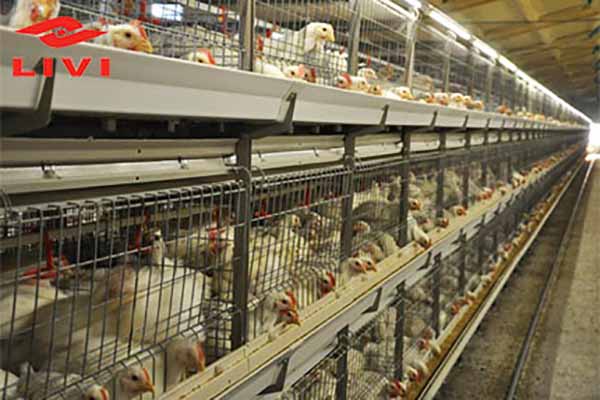Environmental Protection Requirements for Chicken Farms in Tanzania
Time : 2025-07-02
In recent years, environmental protection has become a global concern, and the agricultural sector, including chicken farming, is not exempt from these demands. Tanzania, being a significant player in the African poultry industry, has implemented stringent environmental protection requirements for chicken farms. This article delves into the specific environmental protection measures that chicken farms in Tanzania must adhere to, utilizing expert knowledge in poultry equipment and facilities.
Introduction to Environmental Protection in Chicken Farming
Chicken farming is a vital part of Tanzania’s agricultural economy, providing livelihoods for many rural communities. However, it is crucial to manage the environmental impact of chicken farming to ensure sustainable practices and to comply with national and international regulations. Environmental protection in chicken farming encompasses various aspects, including waste management, energy efficiency, and the reduction of greenhouse gas emissions.
Waste Management
One of the primary concerns in environmental protection for chicken farms is waste management. The accumulation of chicken manure and litter can lead to environmental pollution if not handled properly. Here are some key requirements and practices for waste management in Tanzanian chicken farms:
- Composting: Chicken manure should be composted to reduce its volume and convert it into a valuable organic fertilizer. This process involves the controlled decomposition of manure in the presence of oxygen, which helps to kill pathogens and reduce odors.
- Odor Control: Proper ventilation systems are essential to control odors that can be a significant source of discomfort for nearby communities and can contribute to air pollution.
- Water Use Efficiency: Chicken farms should implement water-saving technologies and practices to minimize water usage and reduce the risk of water contamination.
Air Quality and Ventilation
Maintaining air quality is critical for the health of chickens and the surrounding environment. Here are some requirements and best practices for air quality and ventilation:
- Air Exchange Rates: Chicken houses should have adequate air exchange rates to ensure a fresh supply of air while minimizing the entry of dust and pests.
- Heating and Cooling Systems: Efficient heating and cooling systems are necessary to maintain optimal conditions for chickens, reducing the need for energy-intensive heating or cooling.
- Odor Control Systems: The installation of biofilters and biofilters can significantly reduce odors emitted from chicken houses.
Water Resources and Pollution Prevention
Water resources are vital for chicken farming, but they must be managed sustainably to prevent pollution. Here are some key points:
- Water Recycling: Implementing water recycling systems can reduce water usage and minimize the risk of water contamination.
- Water Quality Monitoring: Regular monitoring of water quality is essential to ensure that it meets the required standards for reuse and discharge.
- Stormwater Management: Proper stormwater management systems can prevent runoff from chicken houses and reduce the risk of water pollution.
Energy Efficiency
Energy efficiency is another crucial aspect of environmental protection in chicken farming. Here are some measures to improve energy efficiency:
- Solar Power: Utilizing solar energy for heating water and powering lighting can significantly reduce energy consumption and costs.
- LED Lighting: Installing LED lighting can reduce energy consumption by up to 80% compared to traditional lighting systems.
- Automated Control Systems: Implementing automated control systems can optimize the use of energy and reduce waste.
Compliance and Certification
To ensure compliance with environmental protection requirements, chicken farms in Tanzania must obtain relevant certifications. Here are some key certifications and their significance:
- ISO 14001: This certification ensures that the farm has an effective environmental management system in place.
- Bird Flu Free Certification: This certification demonstrates that the farm has implemented measures to prevent the spread of avian influenza, which is critical for environmental and public health.
- Animal Welfare Certification: This certification ensures that the farm adheres to high standards of animal welfare, which indirectly contributes to environmental protection by reducing stress and disease in chickens.
Conclusion
Environmental protection is a multifaceted challenge for chicken farms in Tanzania. By implementing effective waste management practices, maintaining air quality, managing water resources, improving energy efficiency, and obtaining relevant certifications, chicken farms can contribute to a sustainable and environmentally friendly agricultural sector. Adhering to these requirements not only ensures compliance with regulations but also enhances the reputation and profitability of chicken farming operations in Tanzania.












